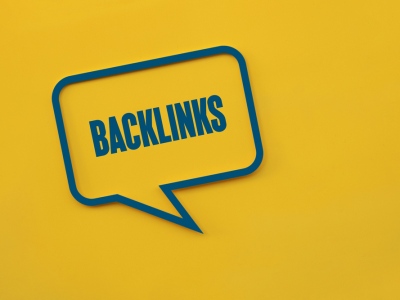Yes, the year is just about over, but before it even concludes, many people are already trying to predict what shape the SEO field will be in next year. What new challenges and algorithms are on their way? How are we going to have to adapt our strategies to achieve the ranking goals we want? In short, what exactly does 2016 hold for digital marketing agencies? Answering this question holistically would probably require a small team of minds, so to keep things practical I’m going to ask this question with regards to just one facet of SEO. One which is due to see a lot of changes, and that is link building.

In 2015 we saw Google go through quite a few changes, mostly for the benefit of the user with regards to location relevance and higher quality content, but we have only been seeing Penguin changes once or so a year. This has been frustrating for those who had previously been flagged for bad backlinks, as the process to getting it sorted out is manual on Google’s end, who deal with thousands of issues daily. Meaning those who are trying to break from their ranking penalties could end up waiting anywhere from weeks to months to have their penalties rectified. This new algorithm is supposed to change all of that with real-time action on link analyses, which will likely have implications across the board.
Link Building in the Past
The idea behind link building is a fairly simple one, albeit constantly challenged by black-hat loopholes. If a few authoritative websites link back to yours, your rankings go up because your website is essentially being vouched for. So what you would want to do, is build up a nice profile of backlinks that can up your rankings greatly. There are a few ways you can do this.
Creating genuinely good and interesting content is a good start. If the content is good enough then you would probably end up building a few backlinks anyway. Aside from that, manual link building is an example of what is considered best practice. That is to say, to physically get in touch with us and other webmasters who have good websites that are relevant to yours, and requesting that they host a link to your website on theirs.
But then from certain techniques like link farming, many SEOs started taking advantage of easier ways to generate links. Link farming is when a group of websites link up to every other site in that group, causing somewhat of a cycle. This of course was never really considered best practice, and Google started manually penalising committers as they found them.
But because it was being done manually, the process was slow and bottlenecked, meaning that not everybody got flagged, and those that did ended up having to wait a long time to have their cases appealed; and it seemed that as far as Google was concerned, that this alongside an annual algorithm update would do.
Do Content Quality and Link Building Correlate?
Of course they do, but not as actively as you would like them to. While great content is essential to secure decent backlinks to your page, it might not go as far as you’d like in attaining them. A recent survey done by BuzzSumo and Moz that in most cases, content circulated by means of shares on social network, which did not necessarily correlate with the amount of backlinks the content generated. They found that in some cases, the most popular content in terms of shares, didn’t have a single backlink.
From this we can see that the content isn’t going to do as much for your backlink generation as you’d like it to. Your backlink profile should have evidence of actual and personal marketing to the right niches, which in turn rely on the quality of the content to secure backlinks from the websites you’ve approached.
Manual or Automatic?
You hear a lot about automatic link building schemes that find and contact thousands of websites a day that boast a 2% success rate. Granted, 2% of a thousand emails a day is still a pretty good number when you’re building links, but does that make this a viable option for careful marketers. Well no, not really.

The thing is that you can get (pound for pound) a better success rate by doing it manually, and you can also build links that are sound and authoritative more easily. It is quite a process: researching niche websites, finding out about the nature of their business, getting involved with them on social media, contacting them, and successfully convincing them to refer to your site. You certainly won’t be reaching thousands of people a day, or not even a month. But you will reach the right people, with the right message that your site is worth vouching for.
The Future of Link Building in SEO
Many of the changes we can expect to come in 2016 are going to be a direct result of Google Penguin. The 2016 Penguin algorithm is supposed to be able to update in real time, or as close to real time a Google can get, which means webmasters won’t have to wait ages to see the results of fixing up their infractions. But this comes with a bit of warning. If Penguin is meant to further automate the process of gauging your backlinks, then that likely means they will be more efficient at flagging spammy backlinks, so if you haven’t been asking yourself, ‘What are the do’s and don’ts for posting links for traffic that from good links?’ Then you should start asking that question now.
On that note it might be a very good idea to do a little bit of a site audit before the new algorithm hits, you could either save yourself some hassle later, or benefit from it in the New Year.
Those are my predictions on how the face of link building will look this coming year. I suspect we can see a more fluid and fast paced marketplace where ranking benefits for good practice will be seen more readily, and problematic areas will be sorted out with the autonomic efficiency of an algorithm.










Comments